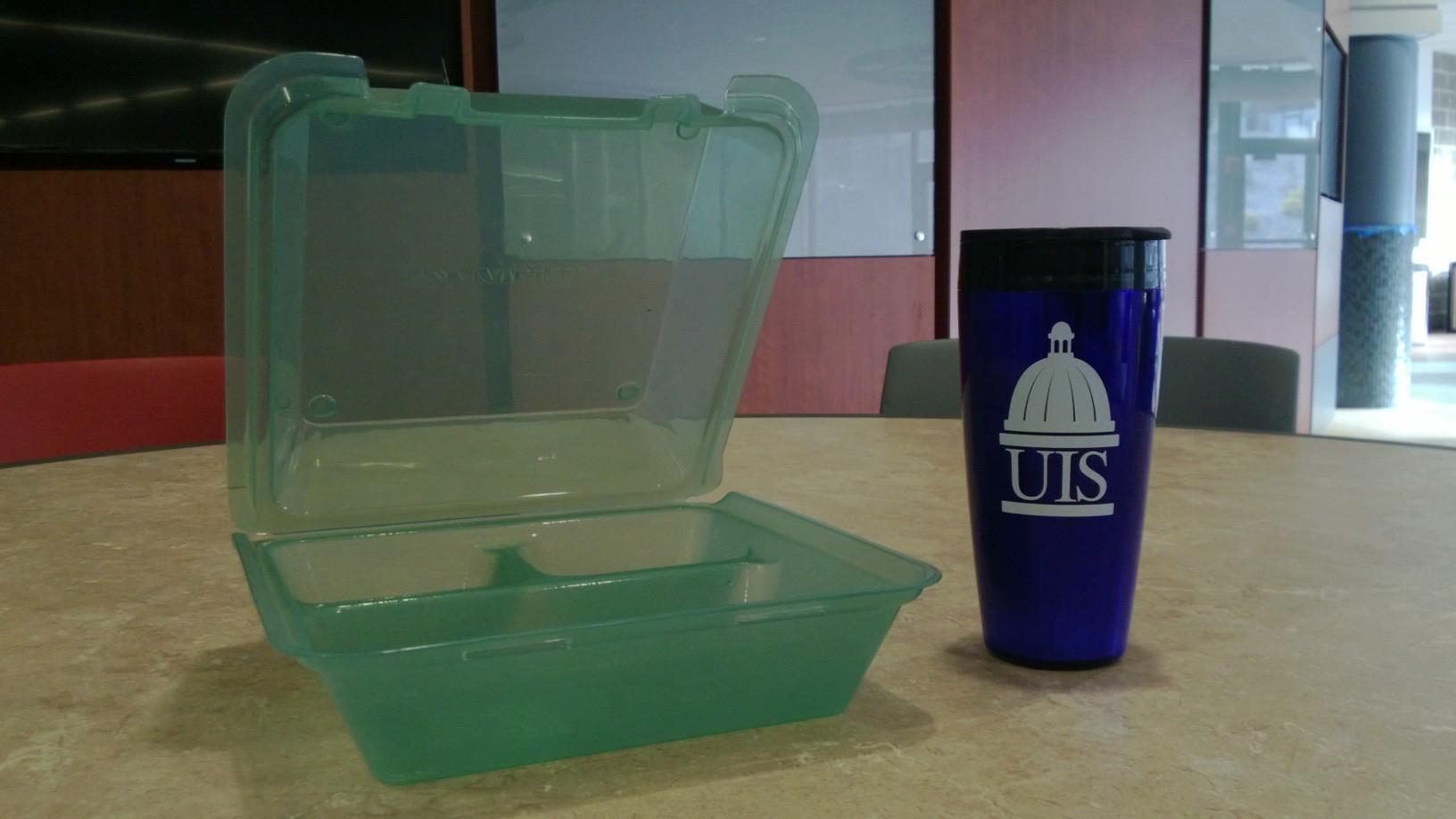Much like the new physical appearance of UIS’s Food Emporium, Food Services welcomes a few new changes as well. In an effort to promote a “green initiative” on campus, UIS Food Services reintroduced their reusable clamshell program just in time for the spring semester.
“We are a part of Student Affairs, and part of our mission statement is that what happens outside of the classroom is just as important as what happens inside. That involves addressing all of those things that make up campus life for students outside of the classroom,” said Food Services Director Geoffrey Evans. “I think it is important to address general concerns that students have, and [sustainability] is one of them.”
According to Evans, food service patrons use roughly 2,000 polystyrene clamshell containers per week. Although the containers offer the ease and convenience that students want and prefer, many students end up ordering “to-go,” eating in the cafeteria, and throwing the container away without it ever leaving the building. While students are not limited to the way in which they order meals, there are downfalls for this eat-and-toss method.
Students and patrons who choose to order meals “to-go” are currently charged an additional 15 cents per container. For those eating three “to-go” meals per day from food services, that amounts to an additional 45 cents per day, which equates to an extra $3.15 per week in disposable containers alone. Evans stressed that not only does this program have the potential to create greater sustainability on campus, but it could also be an initiative to save money over time.
To participate in the program, students and patrons can purchase reusable clamshell containers or reusable mugs for $5 each from a Food Emporium cashier. A standard university meal plan may be used to purchase these items.
After use, participants can then return their dirty containers to the Food Emporium or Founders Capitol Grille for a clean clamshell, or a redeemable card to use at a later time. The returned clamshell containers are put through the food services’ dishwashing system to ensure that each returned container is ready to be reused, said Evans.
Food Services ran a pilot program in early January, in which they gave away 50 reusable clamshells to individuals on campus. Over the course of the pilot program, they noted that many of these containers were used a limited amount of times, and then were never seen again. The team hopes that through continual education on the issue, alongside public concern for sustainability, the number of reusable containers used on campus will increase.
“Word of mouth is important… to spread the word that we do have options to disposable containers and that for people that are generally interested in a green initiative and landfill issues – we do offer alternatives, but we’re not going to force it,” said Evans.
Evans added that Food Services will continue to work to inform and promote programs such as the green initiative and reusable clamshell programs in a financially responsible manner and in a way that appeals to the interests of the community.







